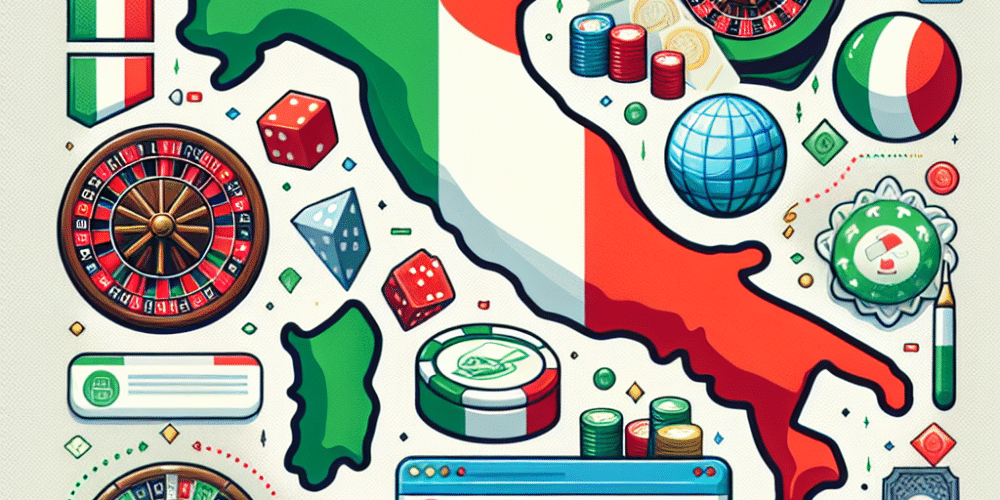Successful applicants in Italy’s recent call for online gambling licenses have been instructed to declare their primary domain for B2C operations by month-end. The order, signed by Antonio Giuliani of the Agenzia delle Dogane e dei Monopoli (ADM), underscores that under the new licensing regime, operators are restricted to operating a single website.
Operators are required to formally report their chosen URL, even if it’s currently active. By November 13, all supplementary domain names, mirror sites, or skins connected to the primary site must be deactivated and expunged from DNS records, in collaboration with internet service providers (ISPs).
This mandate is a component of Italy’s revamped online gambling licensing structure, designed to eliminate the use of multiple domains and streamline the monitoring of player activities. Exceptions exist for operators in temporary business consortiums, who are allowed temporary redirects until year’s end to ensure continuity for existing player accounts during this transitional period.
The ADM cautions that non-compliance with the new regulations could result in suspensions or even the revocation of licenses in cases of repeated infractions.
The regulatory authority has granted new €7 million nine-year licenses to 46 operators, encompassing 52 brands. It announced that Lotto, Scratch & Win, and SuperEnalotto concessionaires would receive authorizations by November 7, enabling them to gather stakes and manage games on behalf of the new online license holders.
The Italian market is seen as a significant player in the European online gambling landscape. The country’s regulatory framework seeks to maintain a balance between controlling the industry and fostering growth. The directive to consolidate domains is perceived as a measure to enhance transparency, a sentiment echoed by industry analysts who suggest that clear visibility over operations will likely bolster consumer trust and compliance.
However, not everyone in the industry agrees with the approach. Critics argue that the one-domain policy might stifle innovation and limit the ability of companies to differentiate themselves in a competitive marketplace. “While the intention is to simplify operations, we must be cautious not to impose limitations that stifle business growth,” noted an industry observer. The consolidation could lead to increased costs for operators, who must now invest in single, more robust platforms.
Yet, proponents believe that these changes are essential for aligning Italy’s regulatory standards with those of other leading markets. They argue that by reducing the multitude of domains, operators can focus on delivering higher quality services through more streamlined operations, which in turn can lead to better user experience and satisfaction.
The timing of these regulatory changes aligns with broader trends in the European gambling market, where there is a move towards greater regulation and consolidation. Countries like Sweden and the UK have been making similar strides, enforcing stricter controls to protect consumers and ensure fair play.
In the face of these developments, operators are urged to adapt swiftly. The ADM’s directive serves as a reminder of the dynamic nature of regulatory environments and the necessity for businesses to remain agile. The current landscape requires operators to not only comply with regulations but also to anticipate changes and evolve their strategies accordingly.
Looking ahead, the Italian market is poised for further evolution. As operators consolidate their domains and adjust to the new framework, opportunities may arise for those willing to innovate within the constraints. This period of transition can serve as a catalyst for redefining how online gambling companies operate, potentially leading to a more responsible and consumer-focused industry.
Overall, the Italian gambling sector continues to evolve amid regulatory changes aimed at ensuring a robust and transparent market. With the new licensing regime, operators are challenged to navigate compliance while optimizing their operations for a competitive edge. As the industry adapts, stakeholders must balance regulatory adherence with the pursuit of innovation and growth.

Garry Sputnim is a seasoned journalist and storyteller with over a decade of experience in the trenches of global news. With a keen eye for uncovering stories that resonate, Alex has reported from over 30 countries, bringing light to untold narratives and the human faces behind the headlines. Specializing in investigative journalism, Garry has a knack for technology and social justice issues, weaving compelling narratives that bridge tech and humanity. Outside the newsroom, Garry is an avid rock climber and podcast host, exploring stories of resilience and innovation.
















